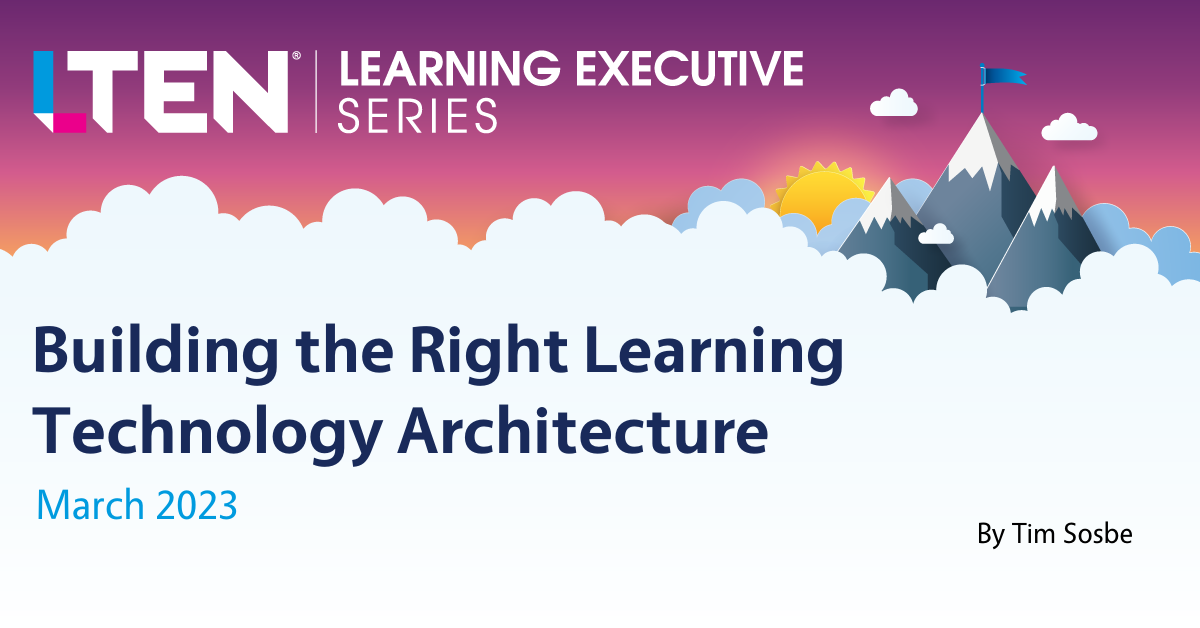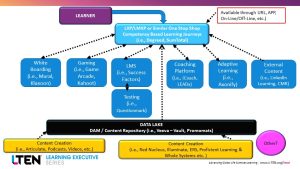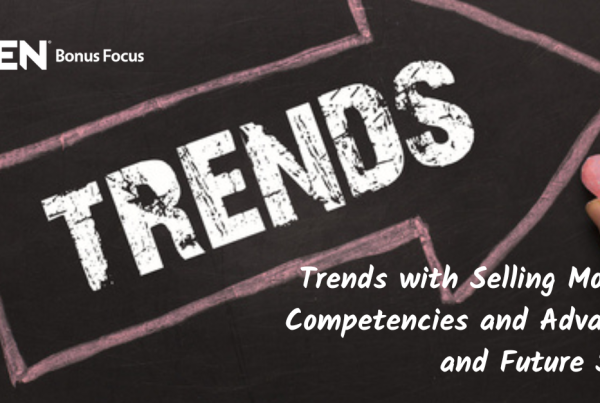
By Tim Sosbe
Life sciences training can be as complex as any other area of healthcare. We train a variety of professionals who support pharmaceuticals, devices, resources and solutions. Not surprisingly, each group has its own specialized training needs for different types of content and accessible through different types of technology.
“Who you are targeting is an important consideration when determining the sort of learning technologies you want to implement,” said Rich Baron, life sciences training leader and LTEN Board of Directors member.
Baron was the primary speaker at the Feb. 15 LTEN mixer, a virtual event put on as part of the Learning Executive Series (see sidebar article). At the mixer, he shared thoughts on training technology and the importance of having the right structure supporting you.
It’s not about which technology is best, Baron said. Many providers have excellent technologies – you just need the ones that best support your objectives.
First and foremost, he said, identify who your audience is that will use the technology. Also consider what you’re trying to achieve.
Other considerations include:
- What are the must haves?
- What are the considerations around implementation?
- What are the considerations to optimize the technology?
- What is the impact of this technology on your training team?
When considering new technologies, keep in mind some basic needs as well:
- Will it make it easier to access content?
- Can it optimize relevance of content for learners?
- Will it enhance coaching and documentation?
- Can we track training and keep official records?
- Will it enable assessments?
- Will it promote accountability?
“Why are you looking at various technologies?” Baron asked. “How are you thinking about them from a big picture as to how they’ll help you fulfill your objectives?”
As part of the interactive presentation, LTEN members were quick to share their thoughts and advice on technology structure:
- Owen Lewis of Boehringer Ingelheim pointed out that technology can be used in combination with other technologies, which might create added complexity. People need to be able to be productive quickly. “Things need to be modular,” he said. “I need to turn things on and off for different areas of the world.”
- Jeff Taylor of Harmony Biosciences reminded everyone of the importance of learner feedback and the ability to comment.
- Mike Ballas of Red Nucleus stressed the need for data and analytics to support tech-enabled training.
- Alison Quinn of Kite Pharma pointed out that existing technologies also may give trainers features and abilities they aren’t currently taking advantage of.
- Todd Billingsley of Biohaven Pharma shared that technology allows us to impact greater numbers of people than ever before. That also means security can be a major concern, as is how will the data be used.
- Cleon Wellington of Intel said we must also consider the ability to learn in the flow of work, as needed and when needed.
- Matt Barry of Astellas said we need to determine who will manage day-to-day support of the technology systems.
- Jackie Cohen of Karuna Therapeutics agreed, pointing out that who supports the system and at what level can impact bottom lines.
As part of his presentation, Baron also shared a sample training technology architecture he built. (See Figure 1) Having a technology architecture can help training professionals ensure that training is structured properly and meeting the needs of everyone involved.
“I think about where technology was five-10 years ago versus where they are today. Today we have these LXPs (learning experience platforms) and LMXPs (learning management experience platform) and we think about those as potentially the windows to the world, the entries, the portals, the one-stop shops where learners can actually come in,” Baron said. “If you build the right levels of integrations, where you tie your other platforms in together, your learner only has one place that they need to go. If I look at this from a few years ago, the learner wouldn’t come in through a centralized location like this.”
Of course, it’s important to plan properly.
“There should be some larger strategic purpose why we’re doing it,” Baron said. “It’s really important to have clarity on what you’re trying to accomplish.”
The LTEN Learning Executive Series: Events, Resources & Interaction
When LTEN initially launched the Learning Executive Forum, it was designed as a single annual invitation-only events to bring together senior learning executives in the life sciences training industry. The scope of that project has grown, with the event becoming just one of the resources under the Learning Executive Series program.
“We’ll have content for you all year long,” said Rich Baron, a member of the LTEN Board of Directors. “We actually have a full year plan – providing webinars, emails, LTEN Focus on Training articles, workshops at the annual conference and virtual round tables with peer-to-peer interaction, which is what we’re having this evening. And, of course, the October annual forum, the Learning Executive Forum, which is now part of the series.”
Under the expanded series, content will be shared at least monthly through LTEN newsletters and publications. Baron and Laura Last, also a member of the LTEN Board of Directors, are co-chairing the LTEN Learning Executive Committee that oversees content and plans. Other committee members, all part of the LTEN Board of Directors, are Hector Baeza, Jennifer Bryan, Amity Cutaia, Jeff Hartzler, Mark Lockett, Jennifer Muszik and Mark Osborne.
Baron and Last co-hosted the Feb. 15 Learning Executive Series mixer and introduced the Learning Executive Series plans. They also extended thanks to the companies that have stepped up to sponsor the series of content, resources and events:
- CMR Institute
- Educational Resource Systems (ERS)
- iCoachFirst
- Illuminate
- LEADx
- Proficient Learning
- Red Nucleus
- Whole Systems
- WLH Consulting and Learning Solutions
Stay tuned for more information and updates as new content and resources are released through the series.
Also, please plan to join us for the next Learning Executive Series mixer, taking place virtually on April 25. Registration details will be announced soon.









